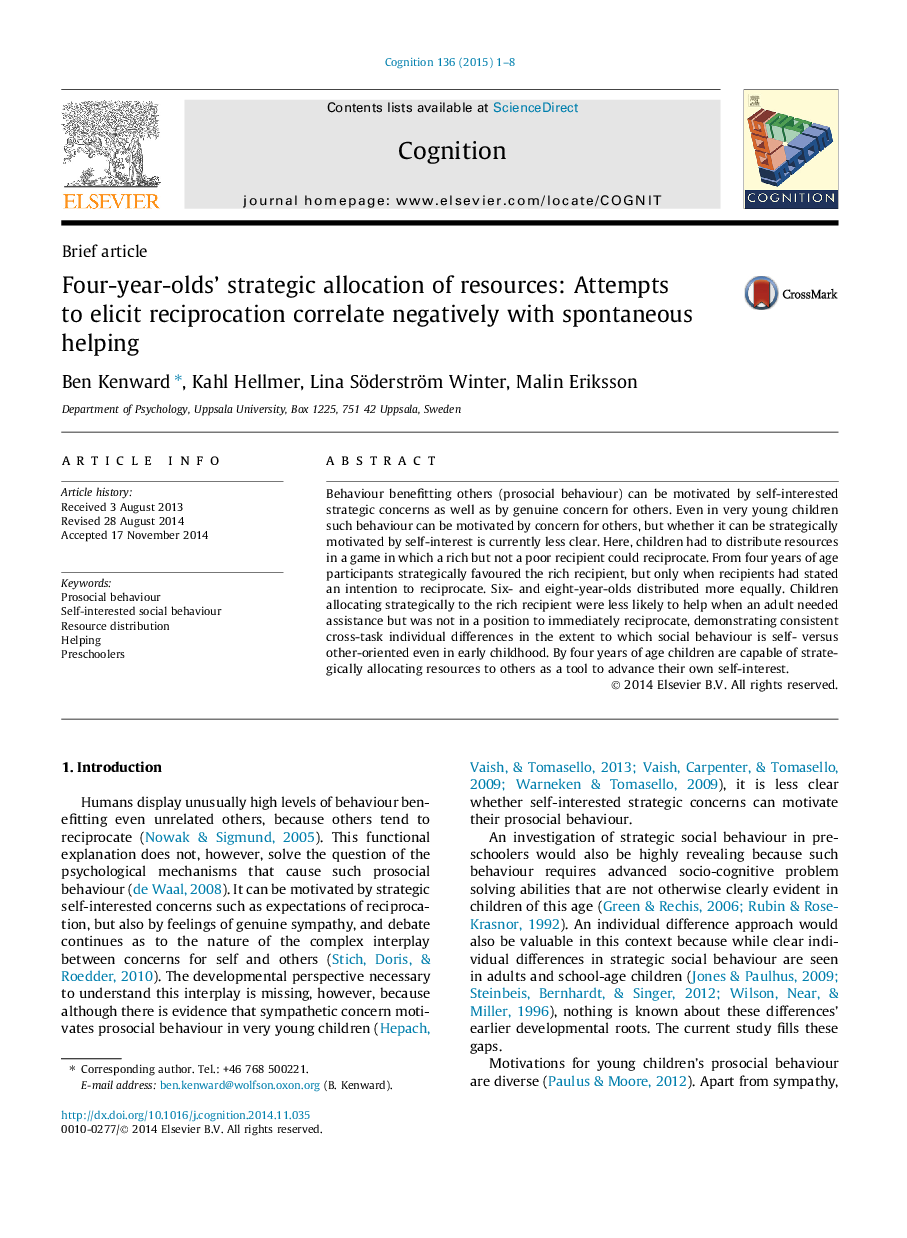| Article ID | Journal | Published Year | Pages | File Type |
|---|---|---|---|---|
| 7287425 | Cognition | 2015 | 8 Pages |
Abstract
Behaviour benefitting others (prosocial behaviour) can be motivated by self-interested strategic concerns as well as by genuine concern for others. Even in very young children such behaviour can be motivated by concern for others, but whether it can be strategically motivated by self-interest is currently less clear. Here, children had to distribute resources in a game in which a rich but not a poor recipient could reciprocate. From four years of age participants strategically favoured the rich recipient, but only when recipients had stated an intention to reciprocate. Six- and eight-year-olds distributed more equally. Children allocating strategically to the rich recipient were less likely to help when an adult needed assistance but was not in a position to immediately reciprocate, demonstrating consistent cross-task individual differences in the extent to which social behaviour is self- versus other-oriented even in early childhood. By four years of age children are capable of strategically allocating resources to others as a tool to advance their own self-interest.
Related Topics
Life Sciences
Neuroscience
Cognitive Neuroscience
Authors
Ben Kenward, Kahl Hellmer, Lina Söderström Winter, Malin Eriksson,
